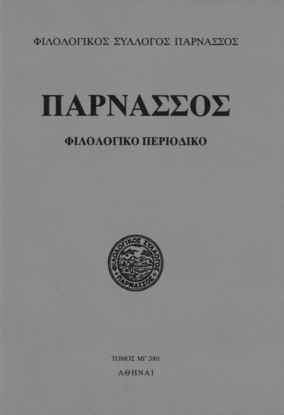Περί διγλωσσίας και διγλωττίας
Part of : Παρνασσός ; Vol.ΜΘ, No.1, 2007, pages 291-300
Issue:
Pages:
291-300
Parallel Title:
On diglossia and diglottia
Author:
Abstract:
The notion that in modern Greece there are two different languages, the common tongue, spoken naturally by the people (dimotiki) and the erudite language (katharevousa) imposed by the purists is, according to the author, an aberration which led, for exlusively political reasons, to the banishment of the latter. Based on the works of eminent linguists, the author goes to show that the state of diglossia, i.e. the simultaneous existence of two variants of a given language, the “higher” and the “lower” one, is common in many linguistic areas (the Arab world, German-speaking Switzerland, Haiti and others) and does not constitute a “Greek exception”. For the sake of clarity, since “diglossia” in Greek means “bilingualism”, the author proposes the use of the term “diglottia” in order to describe Greek linguistic duality, which he considers to be a natural phenomenon subject to evolution and not a deplorable state that must be suppressed.
Subject:
Subject (LC):




